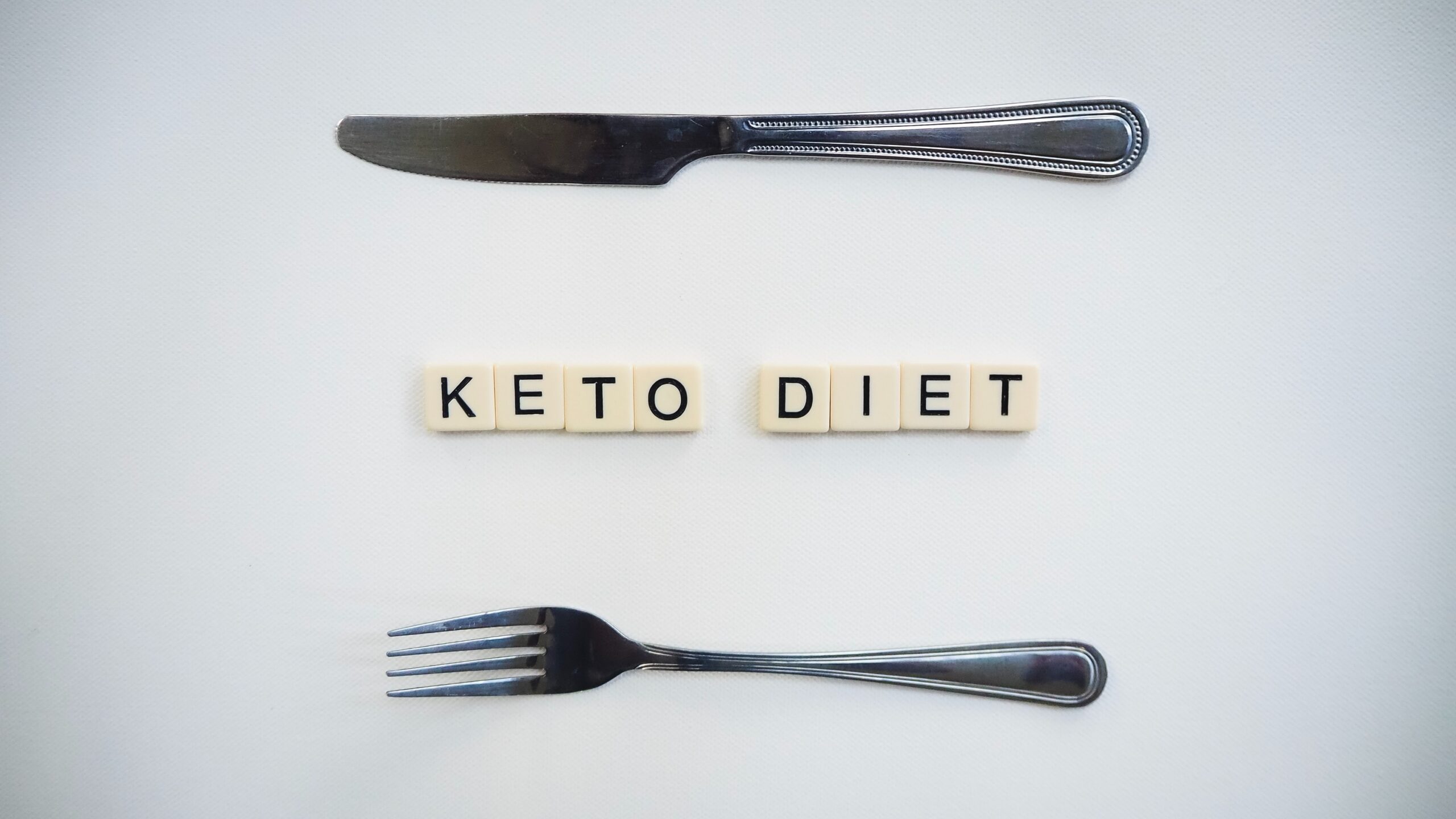I’ve been hosting a number of rooms on clubhouse recently and the question that comes up time and time again is “should I try the Keto diet to help me lose weight?”
The keto diet remains a hot trend for weight loss, but I have to say I have never seen so much confusion and misinformation on one subject in my entire career. Personally, I believe that it’s because there are now many variations to the original keto diet. So, does the science actually support it for weight loss? Well, that depends on which version you are following. Today we will look at the traditional keto diet.
What is the Keto diet exactly?
If you are not familiar with the traditional keto or ketogenic diet it is a low-carbohydrate, high-fat diet designed to induce ketosis. Ketosis, is a metabolic adaptation that has allowed humans to survive during periods of food scarcity. Normally, the body will use glucose which is stored as glycogen, for energy. When the glycogen stores are depleted, the body starts to break down fat producing a compound called ketones. Ketones will provide energy for the brain when glucose is scarce.
The keto diet has been used as early as the 1920’s to treat severe childhood epilepsy. Research suggests that the production of ketones may influence neurotransmitter activity in neurons, allowing for a reduction in seizure attacks. More recently, researches have started to study its impact on neurological diseases such as Parkinson’s Disease and Alzheimer’s as well and some cancers in conjunction with chemotherapy. It is important to note, however, that in a clinical or therapeutic setting, the diet is designed specifically for the individual and support and close monitoring are provided.

What do you eat on the Keto diet exactly?

Low-carb, high-fat ingredients include avocados, meat, fish, eggs, cheese, cream, oil, butter, nuts and seeds. But not all ingredients need to be high in fat – leafy greens and berries are often included, for example. You avoid, or at least heavily restrict, all your go-to carb sources like wheat and other grains rice, corn, beans, pulses, potatoes, milk, most fruit and sugar.
Achieving ketosis is highly individualised, but it can typically be achieved either by fasting, or by strictly limiting carbohydrate intake to anything between 20-50g per day. Fat intake is increased to provide approximately 70% of your total calories. Protein is also usually kept to a moderate amount, as it can encourage the production of glucose and interrupt ketosis. It can take two to five days to enter a state of ketosis, so there is no room for cheat days on this diet.
Will a Keto diet help you lose weight?

The ketogenic diet can induce rapid weight loss as long as you stick to the plan and stay in a state of ketosis. However, research has also shown that there are no significant long-term differences in weight loss achieved using keto versus other dietary approaches after one year. In fact, many of my clients have reported that they quickly regained the weight once they stopped following the diet. This left many with post diet depression and the feeling of personal failure.
Why you lose weight on a Keto diet
- When you limit your food options and most likely your food intake, you will lose weight. Typically, most people would get almost 50% of their energy from carbohydrates. Cutting this by at least half is likely to reduce total calorie intake, even if it’s replaced with fats. On the other hand, if you eat more calories from fat than your body needs, it will still be stored as fat.
- The Keto diet also has an impact on our hormone levels. Many studies have looked at the effect of ketosis on the hormones that regulate appetite, and found that the hunger hormone ghrelin is often suppressed.
- While fat loss occurs with the keto diet, so does loss of lean muscle along with glycogen stores. Glycogen, stores glucose AND water so when our stores are depleted, we lose water and therefore weight.
Long term compliance with the keto diet is low. It may not be a diet that restricts calories however, the types of foods you can eat are significantly restricted, meaning you’ll probably have a hard time sticking to it for the long-term.
Research continues to support the use of ketogenic diets for certain therapeutic situations including malignant brain tumours; neurological disorders such as autism, Parkinson’s disease, Alzheimer’s disease and traumatic brain injuries; acne; and metabolic disorders including PCOS. But this is when the diet is tailored for their individual needs and carefully monitored by a team of skilled nutrition and health professionals. It isn’t meant for the mainstream weight loss market. Carbohydrates have an important role in our diets and whilst reducing them may aid weight loss, it is not sustainable to reduce them to a very low level.
Is the keto diet safe?

The state of ketosis itself does not harm the body. In fact, it may be the reason why some neurological conditions improve quite dramatically. It can increase beneficial compounds, such as the brain-derived neurotrophic factor (BDNF). These proteins are responsible for the growth and health of neurons.
There is a lack of research on the long-term effects of a ketogenic diet. Many of the trials investigating ketogenic diets only follow participants for around six months up to one year at the most therefore, the longer-term effects are yet to be determined. However, there are some concerns:
- There is a tendency for the diet to produce insulin resistance in the muscles and liver as the body adapts to ketosis. If people were able to remain fully compliant to the diet this wouldn’t be a problem, however, many people report starting and stopping the diet many times throughout the year. Each time they do, there is a period of time when their blood sugar variability reaches the pre-diabetes or diabetes range, putting them at increased risk of developing type 2 diabetes.
- A huge concern about the keto diet is the maintenance and potential loss of muscle mass. This is because when we eat carbohydrates, we produce insulin which promotes muscle growth. Some researchers have suggested that people who follow the keto diet, pairing it with hypertrophy training (squats and deadlifts) are able to maintain muscle mass fairly well however, they have a hard time gaining any considerable amount of muscle tissue.
- Using ketones as a major fuel source can put a strain on our liver, and good liver function is essential for healthy thyroid function.
- With the keto diet, major minerals that are missed include sodium, potassium and chloride along with vitamins such as vitamin D, calcium, magnesium, selenium and zinc. The lack of vitamin D and calcium puts keto dieters at risk for reduced bone health and increased risk for fractures and long-term bone diseases.
- The keto diet can hurt your relationship with food. It requires strict adherence that doesn’t allow any wiggle room or cheat days, so it can impact how you experience food centric events like family dinners, holidays, brunch with friends. It can also become quite obsessive.
The health risks also depend on the types of food eaten.
- Eating an unhealthy diet containing lots of saturated fat may increase health risks such as heart disease and stroke.
- Foods containing carbohydrates are often also high in fibre, which is important for a healthy gut microbiome.
- The keto diet limits starchy vegetables such as carrots, sweet potatoes, parsnips, pumpkin and squash and eliminates many fruits. This might restrict the amount and variety of nutrients, vitamins and phytochemicals you get from your food, especially if you remove them rather than replace them.
People who restrict their carbohydrates and increase fatty foods may develop ‘keto flu’. There is very little research on this, and it is not recognised by the medical community, but there are thousands of personal testimonies. Though it sounds unpleasant, it isn’t necessarily unsafe, and many reports indicate the discomfort subsides after about a week. Many would compare it with symptoms of caffeine withdrawal. It is also not clear whether it only occurs on the keto diet or can be caused by other restrictive diets.
How does the Keto diet affect women?

Most of the studies on the keto diet have been done on animals, people with epilepsy and young athletic men – all of whom are hormonally a polar opposite to a menstruating or menopausal woman.
In my rooms, whenever I’m speaking to anyone following the keto diet I will often ask them about their experience of it and what it did to their hormone health. More often, the initial weight loss went hand in hand with a deterioration in their hormones – from worsening PMS to full-on amenorrhea (lack of periods), hot flashes and night sweats. Some the women just said they felt miserable, tired and nauseated with unbearable migraines. But, they kept going because they wanted to lose weight.
Why is the Keto diet challenging for women?
- Carbohydrates are a key part of women’s health in order to sustain healthy hormone balance.
- Reducing carbohydrate intake very drastically puts stress on the body, which can cause an increase in the stress hormone cortisol. When cortisol levels are high over long periods of time, the body compensates by producing more testosterone and oestrogen and less progesterone.
- A diet high in fat spurs more oestrogen production, which in turn suppresses the thyroid, which can put a strain on the adrenals and also lead to weight gain.
- Women have a higher fat percentage and lower lean muscle mass than men. Due to this, our energy requirements and in turn our requirements for fat and protein are different, but the framework of the keto diet still remains the same.
Alternative ways to lose weight
Small steps make a big difference. Why not start by looking at the serving sizes of the foods that you enjoy? How about experimenting with different recipes and cooking techniques so that you no longer rely on jars, packets, convenience foods or ready-made meals? Why not have a look at why you eat rather than what you eat?
The best plan is the one that works for you. It has to be compatible with your food preferences and lifestyle. There are many other approaches to help you find your ideal weight that are not as restrictive, are more sustainable, and have more research behind them. But, if after reading this you would still like to give the keto diet a go then I encourage you to work with a registered dietitian with experience in the keto diet as they will help you learn how to manage your food intake in a healthful, sustainable way.










